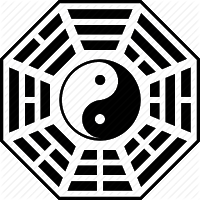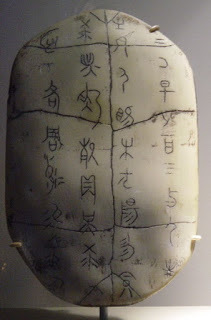The Oldest Book in the World
âThe gold in oneâs heart is far more precious than the gold in oneâs purse.â --Confucius
While doing research on fortune cookies, good luck and fate for my upcoming novel, I came across some interesting tidbits about the I Ching. First, I learned itâs the most influential book in China. Most families have a copy of the revered book of wisdom because they feel it brings them good health and prosperity.
The I Ching, also called âThe Book of Changesâcan be traced back as far as 7,000 B.C. when a sage by the name of Fuxi (please donât try pronouncing his name if youâre in an office full of people.) had many lessons to share about fishing, hunting and marriage. He began to use mystic symbols that represented positive and negative situations with long and short bars called yang and yin. He devised something called a Pa Kua which later evolved into a group of 64, six-line figures called Hexagrams. The most fascinating part of all of this is two-fold: Not only is the I Ching the oldest book in the world, but the binary system using those ancient hexagrams is the basis of modern electronic computing.

 Oracle bones predate recorded history
Oracle bones predate recorded historyAfter carving a story, they would put it into the fire.
The cracks were the messages from the past.
(Wikipedia-Creative Commons)
While I wish I understood the numerical breakdown and the practical applications that even attracted famous minds, such as the Swiss psychologist C. G. Jung and Swedish physicist Niels Bohr, I am in awe of the collective opinions of experts who admit the predictions seem divine and above human understanding.
In my humble opinion, the mathematical sequences and patterns are repetitive, in the same way, that history repeats itself. Do you think we can find our own luck by studying our past?
âThe answer you seek is within you, but it may be hard to find.â --Confucius
Published on June 04, 2018 18:43
No comments have been added yet.



